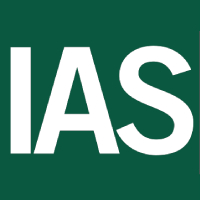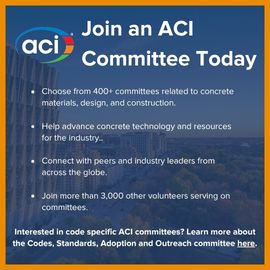
Meet IAS assessor Osman Vural
 Osman Vural has been doing assessments for the International Accreditation Service (IAS) since 2014. He graduated from Gazi University in Ankara, Turkey, in 1989 as a civil engineer. Following graduation, Vural worked for a brief period in construction projects as a junior site engineer.
Osman Vural has been doing assessments for the International Accreditation Service (IAS) since 2014. He graduated from Gazi University in Ankara, Turkey, in 1989 as a civil engineer. Following graduation, Vural worked for a brief period in construction projects as a junior site engineer.
He began working at the Turkish Standards Institute after finishing his military service. During Vural’s work in the Turkish Standard Institute he was in the construction project department, and later transferred to the World Bank project team and was included in the Istanbul Laboratory Campus construction and development project. After two years of working on this project, he was named as a project engineer for the Izmir Regional Directorate of the Turkish Standards Institute and began working as a control engineer for the ongoing construction work in the campus. At the same time, Vural served in the construction and material laboratory as an engineer and a chief, respectively. During this time, he became interested in quality management systems and calibration subjects as well.
In 1997, Vural resigned from his position at the Institute and set up his own consulting business. From 1997 to 1999, he served different industry companies as a management systems consultant. He set up Turkey’s 11th calibration laboratory at the end of 1999 and started delivering industrial-level calibration services with his team.
In 2003, within his group of companies, Vural formed an e-commerce company and started the online distribution business of 21 global instrumentation brands in Turkey. It was the first e-commerce site in Turkey in the field of instrumentation. In 2004, he started to operate in the field of conformity assessment and management systems certification. At the end of 2006, Vural set up Turkey’s first private accredited personnel certification body, which widened his companies’ field of service. Until 2014, he worked on several academic research projects as well. Vural also provided several training courses on quality, calibration and management systems.
In addition to these duties, Vural became a member of the International Personnel Certification Association in 2007. He was elected as a board member in 2010 and was elected the chairman of the association in 2015, serving two consecutive terms. Vural is still a board member of the association. In 2014, he founded the Aegean Management Consultants Association and served as its chairman. Vural also served as a board member of the Federation of Manufacturer and Businessmen of Western Anatolia between 2018-2020.
When he isn’t doing assessments for IAS, Vural enjoys setting up websites as a hobby. He also produces and presents a weekly podcast program on management systems and small- and medium-sized enterprises called Mikro-pedya. A self-proclaimed motorcycle enthusiast, he currently resides in Izmir, Turkey with his wife and two children. Here’s what Osman Vural had to say about doing assessments for IAS.
What is your favorite part of doing assessments?
To be involved in an accreditation assessment is to be in an incredibly diverse and non-repetitive work environment. Of course, getting to know new businesses and practices, cultures, and traveling regularly is also very cool. In the end, you notice that the best aspect of this work is to provide input that will contribute to a conformity assessment bodies’ processes operating in any region of the world.
What creates a positive assessment experience?
As an assessor, your experience and process knowledge in the field you are assessing are important. You must also be a good listener and good observer. In addition, I believe if you understand the processes well, you can establish maximum communication with the customer during the assessment. If the assessment team and the customer understand each other very well, I think the result is always a positive experience.
How should a customer prepare for an assessment?
I don’t think special preparation for accreditation assessments is necessary. An effective internal audit and management review are helpful mechanisms in both management and preparedness for the assessment. However, if a conformity assessment body (CAB) tries to improve their processes only a few days before the assessment and only focuses on a successful evaluation, we as assessors, witness their processes are more inefficient and challenging.
What is your advice to a company seeking accreditation?
I can advise a few things; start by understanding the philosophy of the accreditation mechanism. Accreditation is not just an audit and certification. Accreditation is a process that adds value and provides a scientific trust mechanism to interested parties. Firstly, CABs need to understand all the related standards and guidance published and applied internationally in their field. Secondly, CABs should implement the rules and terms according to their culture and natural environment, copying someone else’s quality documentation should be avoided. Thirdly, continually train employees as it automatically leads to a better-structured management system and a technically competent environment. Lastly, I would advise CABs to understand their customer’s needs and choose their technical equipment and accreditation scope accordingly.
How did you start doing assessments for IAS?
In 2011, I was involved in an IAS accredited calibration lab and personnel certification body. This was my introduction to IAS. Through the years, I became interested in taking a role in the IAS accreditation process and I applied to become an assessor. Then in 2014, I began my on-site evaluation and trainee period. At the end of 2014, I was assigned to the IAS assessment team as a technical assessor.
What is the value of accreditation in your opinion?
Accreditation is not only a tool to deliver internal improvement and to meet regulatory compliance, but businesses show that it can have a positive effect on revenue. Also, customers perceive an accredited certification provides value for the money. It is both a good marketing tool and a control mechanism. It’s also the most impartial evidence of compliance with international standards and requirements and proves that CABs have the competence and impartiality necessary to do so.








